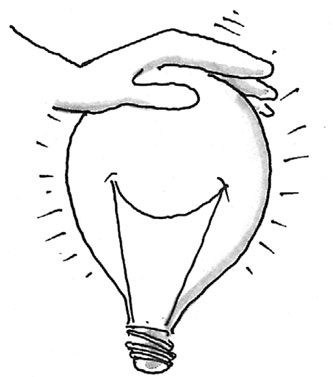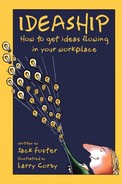8.
PRAISE THEIR EFFORTS

“Appreciation is to talent,” wrote Baltasar Gracian in 1653, “what the West wind is to flowers — life and breath itself.”
“I have yet to find the man,” wrote Charles Schwab, “however exalted his station, who did not do better work and put forth greater efforts under a spirit of approval than under a spirit of criticism.”
“A great manager,” said Reggie Jackson, “has a knack of making ballplayers think they are better than they think they are. He forces you to have a good opinion of yourself. He lets you know he believes in you. And once you know how good you really are, you never settle for playing anything less than your very best.”
“One thing scientists have discovered,” wrote Thomas Dreier, “is that often-praised children become more intelligent than often-blamed ones. There’s a creative element in praise.”
All these people and thousands like them have recognized the same thing — praise makes people better.
But some leaders feel praise should be meted out grudgingly, and only occasionally, and only if richly deserved; that too much praise lessens its effect, that each accolade makes the next one less meaningful, that bosses should be hard to please and stingy with compliments.
Phooey.42
That kind of attitude will never develop people who generate ideas.
As long as you keep it specific, you cannot praise too much. It is impossible. The need most people have for sincere, honest praise is insatiable.
Do you ever tire of being complimented? Then why do you think others would?
Nor does too much praise lessen its effect. People want to believe in themselves. Praise helps them do it. Perhaps the people you work with will someday no longer need reassurance. But don’t hold your breath.
Nor is praise from one who seldom gives it more beneficial than praise from one who gives it a lot.
Granted: Hard-to-get praise carries more impact than easy-to-get praise.
But the holding back of praise carries even greater impact, for it is always damaging and often disastrous. It makes people think their work is being taken for granted, that their jobs don’t matter, that what they produce doesn’t matter. It makes them feel unappreciated and unrecognized. It causes anger and resentment.
Worst of all, it lowers self-images.
In sum: An ideaist’s primary job is to make people believe in themselves. Someone who seldom gives praise makes people doubt themselves.
None of this is to suggest that you must run around wildly giving out compliments, only that you must never hold them back.43
Furthermore, you must look for ways of giving compliments often. And remember — every day is not too often.
It certainly isn’t for John Ball, the Service Training Manager of American Honda Motor Company. Every day, he tries “to remember that… people may actually need day-to-day praise and thanks for the job they do. I try to remember to get up out of my chair, turn off my computer, go sit or stand next to them and see what they’re doing, ask about the challenges, find out if they need additional help, offer that help if possible, and, most of all, tell them in all honesty that what they are doing is important: To me, to the company, and to our customers.”
